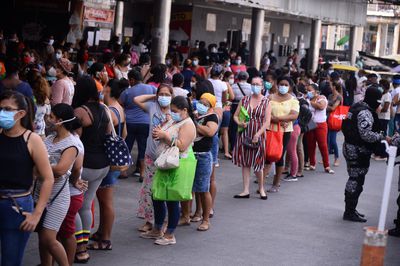Social behavior key to beating virus spread
While health authorities can detect, treat, and cure the coronavirus the social behavior of the population amplified by poverty is one of the key pieces to stop the transmission says a study prepared by the Center for Scientific Research of Social Sciences (Cenics).
Luis Carlos Herrera, scientist at Cenics, said that the epidemic has revealed the magnitude of the historical social problems of Panama society. behavior and individualism -“he who plays lives”- end up affecting everyone.
When the measures introduced by the authorities to fight the virus began to increase “socially this goes against the collective imagination of the Panamanian who, for example, go to the mall twice a week and does not like to be told what he can or cannot do.”
Herrera said that social problems and behaviors influence the health crisis, and are not changed in the short term, nor with laws or regulations. It is a long-term process, involving all social actors
Values
He said that this behavior of the population is due to the fact that there are families lacking values, civility, respect for authority and in which rebelling proliferate; and education does not respond to the needs of comprehensive training.
Impunity and corruption have their role, because crimes are committed, and are denounced, and nobody is punished. this message, he said, the population loses respect for authority and compliance with the rules is ignored.
However, social exclusion, inequality and poverty are the backbone of the problem that leads people to fail to comply with established measures, because they are in need of going out to obtain food for their families.
Ministry of Health (Minsa) reports show that the increase in cases is reported in townships in the provinces with the largest number of multidimensional poor: Panama, with 133,237 people in this condition, and Panama West, with 92,980 to the Panama Multidimensional [extreme] Poverty Index of 2017.
Reopening risks
Néstor Sosa, an infectologist and former director of the Gorgas Commemorative Institute for Health Studies said that the liberalization of physical distance measures, and the reopening of economic activities brings with it the risk of an increase in cases.
He added that this has been evident in various countries where , after implementing strict measures of the movement of people and relaxing them, they have experienced a flare-up. "The effect is not only due to economic openness but to the perception of risk reduction by the population when activity begins to normalize," said Sosa.
sociologist Rubiela Sánchez said that there is little fear of the virus among the population, because they have not had a close experience and there is no awareness of risk. people with little money prefer feeding their children to buying masks.
